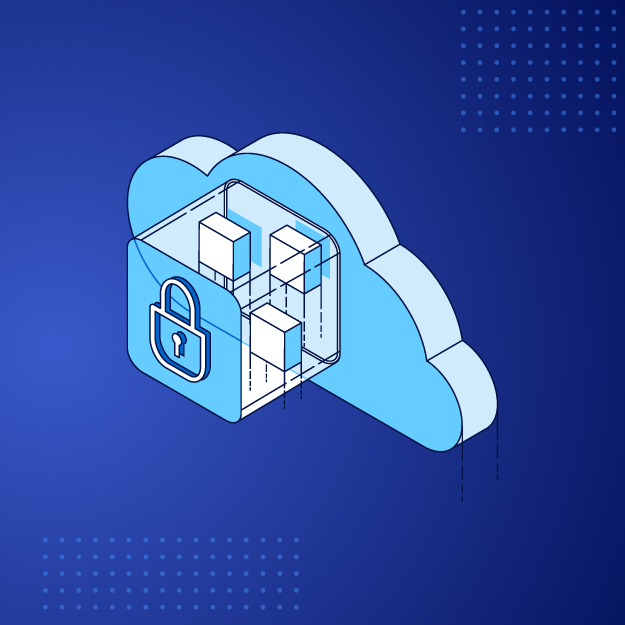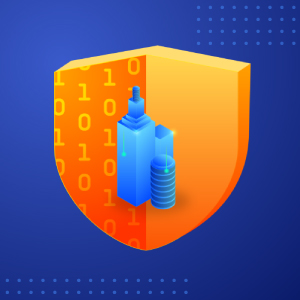Kubernetes is a powerful platform for deploying and managing containerized applications in the cloud. It offers many benefits such as scalability, portability, resilience and automation. However, Kubernetes also poses some challenges when it comes to data protection and security, especially in the public sector where sensitive data and compliance regulations are involved. That’s why we are excited to continue our strategic partnership with Carahsoft Technology Corp., the leading government IT solutions provider, to deliver Kasten K10 by Veeam, the market-leading Kubernetes data protection solution, to public sector customers across the U.S.
In this blog post, we will explore some of the common issues that public sector organizations face when using Kubernetes, and how Kasten K10 by Veeam can help them overcome these challenges with a simple, secure and scalable solution for Kubernetes data protection.
The challenges of Kubernetes Data Protection in the Public Sector
One of the main challenges of Kubernetes data protection in the public sector is the complexity and diversity of the Kubernetes environment. Kubernetes clusters can span multiple clouds, regions and zones, and contain hundreds or thousands of applications and microservices. Each application may have its own data sources, dependencies and configurations, which need to be backed up and restored consistently and reliably.

Another challenge is the security and compliance of the Kubernetes data. Public sector organizations often deal with sensitive data such as personal information, health records, financial transactions or national security secrets. These data need to be protected from unauthorized access, modification or deletion, as well as from external threats such as ransomware attacks. Moreover, public sector organizations need to comply with various regulations and operate in secure environments, which requires cluster deployments in compliant hybrid environments spanning examples like AWS GovCloud and Red Hat OpenShift.
A third challenge is the scalability and performance of the Kubernetes data protection solution. As Kubernetes clusters grow in size and complexity, so does the amount of data that needs to be backed up and restored. Public sector organizations need a solution that can handle large volumes of data without compromising the availability or performance of the Kubernetes applications. They also need a solution that can scale up or down as needed, without requiring manual intervention or complex configuration changes.
The Solution: Kasten K10 by Veeam
Kasten K10 by Veeam is a purpose-built solution for Kubernetes data protection that addresses all these challenges and more. Kasten K10 is designed to simplify and automate the backup and recovery of Kubernetes applications and their data across any environment. It offers the following features and benefits for public sector organizations:
- Application-centric approach: Kasten K10 treats each Kubernetes application as a unit of backup and recovery, rather than individual containers or volumes. This ensures that the application state and dependencies are preserved across backups and restores, regardless of where they are running or how they are configured.
- Policy-driven automation: Kasten K10 allows public sector organizations to define backup policies based on application metadata such as labels, annotations, namespaces or clusters. These policies can specify the frequency, retention, location, encryption and compression of the backups, as well as any custom actions or hooks that need to be executed before or after the backup. Kasten K10 then automatically applies these policies to the matching applications, eliminating the need for manual backups or scripts.
- Secure and compliant data protection: Kasten K10 encrypts all backup data at rest and in transit using AES-256 encryption keys that are stored in a secure key management system. Kasten K10 also supports role-based access control (RBAC) and audit logging to ensure that only authorized users can access or modify the backup data. Additionally, Kasten K10 provides ransomware protection by creating immutable backups that cannot be overwritten or deleted by malicious actors.
- Scalable and performant architecture: Kasten K10 leverages a distributed architecture that scales with the Kubernetes cluster. It uses parallelism and deduplication to optimize the backup, restore performance and reduce the storage footprint. It also supports incremental backups and restores to minimize the network bandwidth and application downtime.
- Application portability: Kasten K10 enables public sector organizations to ensure application portability across diverse Kubernetes environments by using Transform Sets. Transform Sets are a set of rules that can modify the application configuration during backup or restore, such as changing namespaces, labels, annotations, storage classes, or secrets. This allows public sector organizations to migrate their applications from one cluster to another, or from one cloud to another, without breaking their functionality or security.
Next Steps
We hope this blog post provided valuable insights into how Kasten K10 by Veeam can help you protect your Kubernetes data in the public sector. If you want to learn more, here are some next steps you can take:
Watch this video to see Kasten K10 in action and learn how it can simplify and automate your Kubernetes data protection workflows: https://youtu.be/gu3J6ZeWwK8
Try the full-featured and FREE edition of Kasten K10 today with this super-quick installation in less than 10 minutes: https://www.kasten.io/free-kubernetes
Don’t miss this opportunity to take your Kubernetes data protection to the next level with Kasten K10 by Veeam and Carahsoft. We look forward to hearing from you soon! Download our full Gorilla Guide to Securing Cloud Native Applications on Kubernetes.

